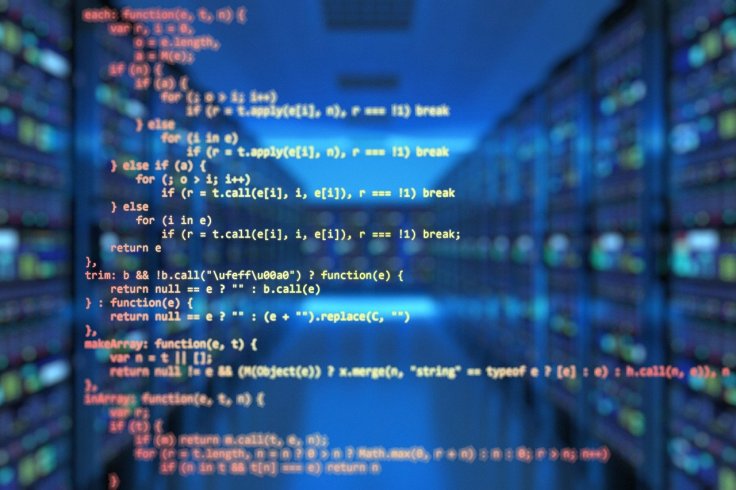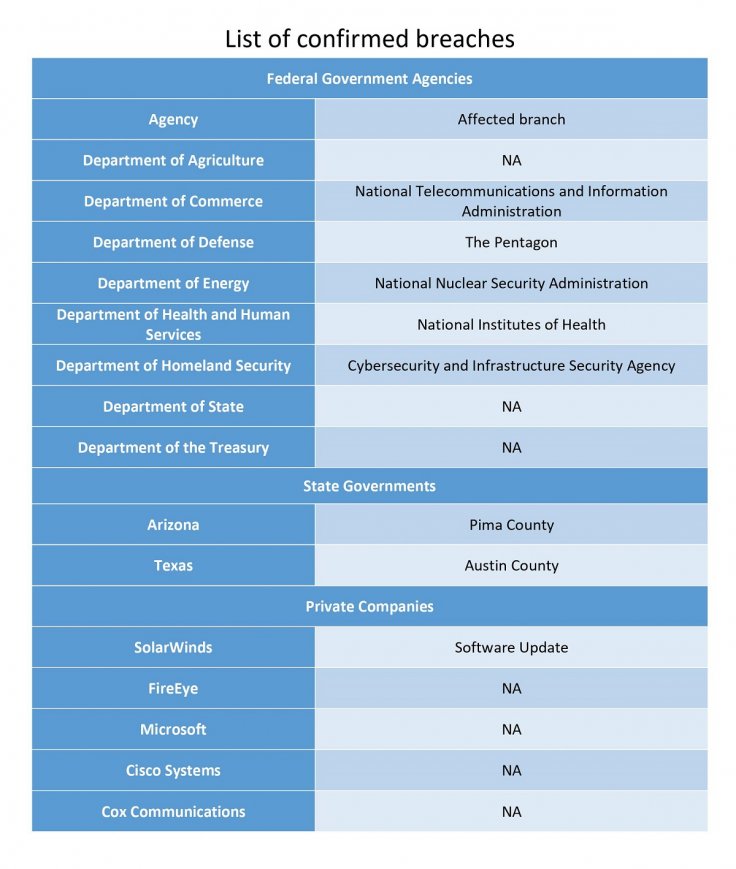December 7 of 1941 was one of the darkest days in U.S. history. Amid World War II, Japan attacked the U.S. naval base, killing over 2,400 people. The U.S. subsequently was dragged into the war. Fast forward to 2020, the game of war has changed slightly. Guns, tanks and fighter planes aren't the only means of war. A few lines of code can be equally effective.
Seventy-nine years on, the U.S. is facing a similar attack, albeit with no human casualty. Alleged Russian hackers managed to infiltrate SolarWinds, an IT software provider for the government, back in October 2019 and breached at least eight federal agencies, two state governments and five private companies, compromising the country's national security. That the cyber attacks also included the Department of Energy, the Pentagon and the National Nuclear Security Administration (NNSA), says a lot.
'Cyberequivalent of Pearl Harbor'
While the two attacks cannot be compared on paper, many senators and congressmen are calling it cyberequivalent of Pearl Harbor and there is some truth to it. The alleged Russian hackers — APT29 or Cozy Bears — behind the SolarWinds hack have been a nemesis of the U.S. The hacker group with alleged ties to the Russian intelligence agency (GRU) was behind the 2016 Democratic National Convention (DNC) hacks and Hillary Clinton's email leaks that had a great influence on the 2016 Presidential Race.

The 2016 hacks taught a thing or two and cybersecurity was strengthened across federal agencies, leading to the formation of the Cybersecurity and Infrastructure Security Agency (CISA) under the Department of Homeland Security. But as hackers have evolved and adopted new techniques, government agencies and private companies have largely fallen behind. The SolarWinds cyber attacks were the perfect example. The hackers managed to stay hidden in the company networks for months and trojanized the IT management software update to infiltrate thousands of its customers' networks.
"The situation is developing, but the more I learn, this could be our modern-day, cyberequivalent of Pearl Harbor. Our nation is under assault. This cyberattack could be the largest in our history," said Colorado Democratic representative Jason Crow said in a tweet on Friday, slamming Trumps' lack of response.
Demands for Retaliation Grow
But now, U.S. politicians believe that it is time to give it back, tracking down the hackers and launch an assault with the very sophisticated methods they had adopted. While President Donald Trump has maintained silence and the Kremlin has denied the allegations, demands for retaliation is growing, even among Republicans.
Congressional Republicans echoed Democrats' voice, demanding retaliation. Republicans on the House Armed Services Committee said the U.S. must respond. "Our nation must respond to the reported cyber-espionage operation targeting America's nuclear infrastructure and federal government and hold the perpetrator accountable. This attack serves as a stark warning that our nation must bolster its cybersecurity posture and capabilities, and it must do so without delay," they said in a statement.
Democrat Senator Chris Coons from Delaware told MSNBC that the hacks were an act of war and should be dealt with. "It's pretty hard to distinguish this from an act of aggression that rises to the level of an attack that qualifies as war. It is as destructive and broad-scale an engagement with our military systems, our intelligence systems, as has happened in my lifetime," he said.
The question is, will the U.S. respond, similarly to the Pearl Harbor attacks? The answer isn't simple. One major difference between the two attacks is that the enemy is invisible, hiding behind firewalls and tracking the digital footprints isn't that simple. While Cozy Bear has been designated as a state-backed Russian hacking group, unlike Japanese warplanes, there is no clear evidence that it was directed by the Kremlin.
The methods used to carry out the cyberhack are consistent with Russian cyber operations.
— Marco Rubio (@marcorubio) December 18, 2020
But it’s crucial we have complete certainty about who is behind this.
We can’t afford to be wrong on attribution, because America must retaliate, and not just with sanctions.
For the first time, a U.S. cabinet member has openly attributed the cyberattack to the Russians. "This was a very significant effort, and I think it's the case that now we can say pretty clearly that it was the Russians that engaged in this activity," Secretary of State Mike Pompeo said on the Mark Levin Show on Friday, adding that the government was investigating the matter and it was best not to comment in public about the attacks.
While Trump has always shied away from naming and shaming Russian President Vladimir Putin or his government, a retaliatory attack might be on the cards. With just 31 days left in his presidency, Trump may be reluctant to take action against the Russians, but with Democrat Joe Biden replacing him on January 20, there could be a retaliatory attack. It is the Democrats who have been Russia's and Putin's staunch critics. After the 2016 election interference, the Barack Obama administration imposed sanctions on Russia and expelled many Russian diplomats from the U.S.

Hence, Biden may follow his former boss and do the same or take a step forward in launching a cyber offense, albeit secretly as most of the cyber warfare remains classified. In 2005, the U.S. government launched a cyber attack on Iran's nuclear facility jointly with Israel. Similar attempts were made against North Korea's nuclear program later.
Synonyms for "targeting"aimingguideguidingtargetedaimedgearedGet more synonyms with Premium Subscribe









